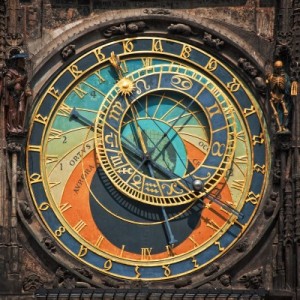Astrology Company Claims Copyright in What The Local Time was Yesterday
Astrolabe, Inc. an astrology (not astronomy) company based in Massachusetts is claiming copyright ownership to the world’s historical time zone data. In a lawsuit filed in federal court in Massachusetts, Astrolabe has sued Arthur David Olson and Paul Eggert, the founding contributor and current maintainer of the TZ Database which is used by computer programs and operating systems around the world to calculate historical time zone information. Astrolabe is apparently claiming it owns the factual information as to what time was shown on a local clock at a particular point in the past.
The purported basis for this lawsuit is Astrolabe’s copyright in computer software known as the ASC Atlas. Obviously copying computer software is typically copyright infringement. In this instance however, the defendants are not being accused of republishing the computer program, but rather the clock setting history database for hundreds of thousands of locations.
So the question for the court is, can you copyright a long list of facts? What if obtaining the facts took a lot of work? What if the facts are put in a database?
The short answer to the above questions is “no.” Facts are not entitled to copyright protection, only creative works are. What the town square clock read at particular point in the past is not a creative work. Even if that information is put in a database and keyed to a specific longitude and latitude. Even if it took a lot of research to determine what the time was on the town square clock forty years ago. The reason is that factual information is neither creative nor original.
As set out succinctly in the United States Supreme Court case Feist Pubs., Inc. v. Rural Tel. Svc. Co., Inc., 499 U. S. 340 (1991),
Article I, § 8, cl. 8, of the Constitution mandates originality as a prerequisite for copyright protection. The constitutional requirement necessitates independent creation plus a modicum of creativity. Since facts do not owe their origin to an act of authorship, they are not original, and thus are not copyrightable.
In Feist, an upstart yellow page publishing company sought to license the white page listings from several small telephone companies in northwestern Kansas in order to create a regional white pages telephone directory and a competing yellow pages directory. All but one of the local telephone companies licensed its white page data to Feist. The holdout telephone company, Rural, did not want Feist to compete in the lucrative yellow pages business and refused to license its white pages data. Feist included the information from Rural’s white page directory anyway and litigation ensued.
The U.S. Supreme Court in Fesit held that facts are not copyrightable nor are compilations of facts unless the compilation itself is in is in some way creative (and then only to the extent of the creative expression, not the underlying facts). A run-of-the-mill white pages directory is not sufficiently creative or original to warrant copyright protection.
The selection, coordination, and arrangement of Rural’s white pages do not satisfy the minimum constitutional standards for copyright protection. As mentioned at the outset, Rural’s white pages are entirely typical. Persons desiring telephone service in Rural’s service area fill out an application and Rural issues them a telephone number. In preparing its white pages, Rural simply takes the data provided by its subscribers and lists it alphabetically by surname. The end product is a garden-variety white pages directory, devoid of even the slightest trace of creativity.
In Astrolabe’s complaint, it apparently attempts to get around the “facts are not copyrightable” legal doctrine, by referring to its time zone data as “interpretations.”
These atlases set forth interpretations of historical time zone information pertaining to innumerable locations throughout the world, based upon the compilation of historical research and documentation regarding applicable time zones officially and/or in actuality in effect, given the actual latitude and longitudes of specific locations throughout the world.
While the process used to determine the correct time zone data may have been creative or clever, how a fact was discovered does not transform that fact into something other than a fact. Either the time zone data is factual or it is not. If the data is inaccurate and simply “made up” then it would be considered a creative work which would be entitled to copyright protection. Moreover, if it were inaccurate, Astrolabe could rest assured that it would never be copied again.
(As an aside, the concept of facts not having copyright protection may be a difficult concept for Astrolabe — an astrology company which routinely makes up “facts” which are thus entitled to copyright protection as creative works.)
Based on the time zone website maintained by one of the defendants, it is clear that the time zone data is constantly being updated and refined as new time zone research information emerges. You can follow some of the discussions on the time zone mailing list. Perhaps Astrolabe should be collaborating and improving its database with the defendants rather than suing them.
About Me
Recent Posts
- Dash v. Floyd Mayweather: Copyright Damages Require more than mere Speculation
- Copyright Renewal Rights Must be Transferred with Specificity
- Mobile Phone Carriers not Indirectly Liable for Text Message Copyright Infringement
- Can you get Copyright Protection on an Informational Diagram?
- WNET v. Aereo: Is renting a TV antenna copyright infringement?






